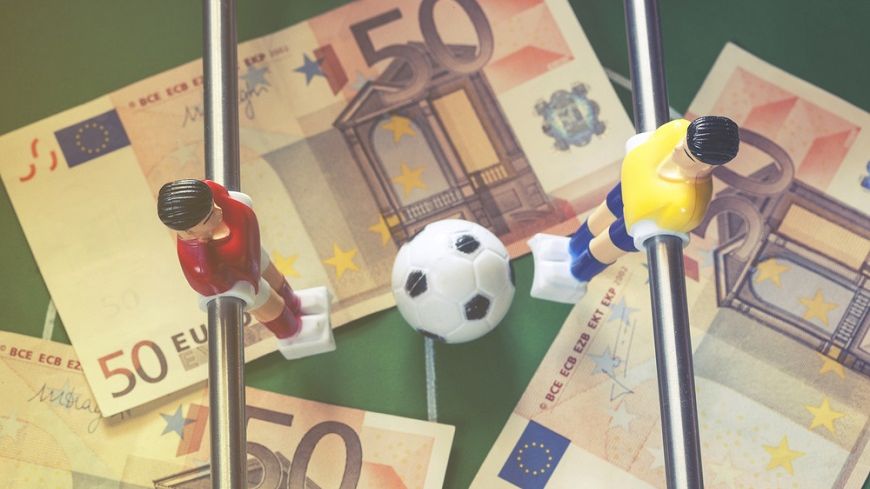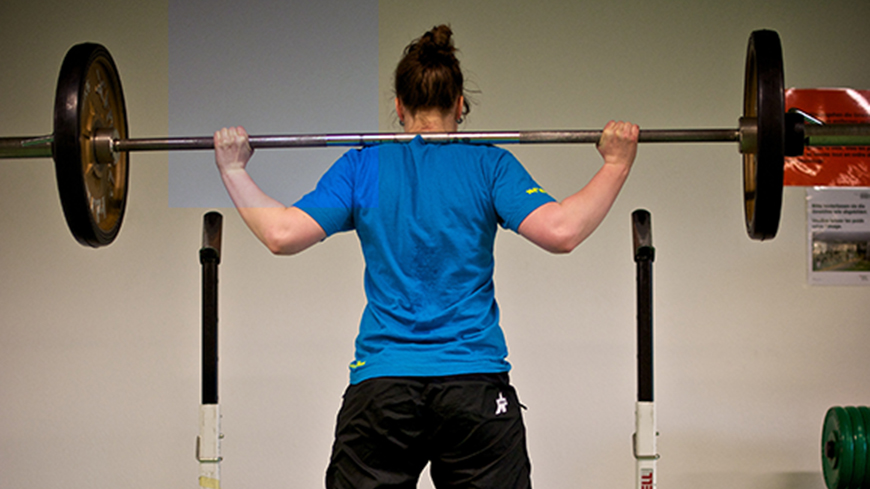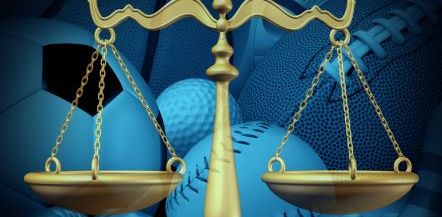Ethical sport
Over the last four decades, the Council of Europe has worked tirelessly to promote sport’s positive values, to open up participation and to fight the threats sport faces at the local, national and international levels.
This is in line with our mission to uphold democracy, human rights and – critically – the rule of law. It is clear that Europe has a role to play in helping to restore and uphold the integrity of sport.
Sport should be ethical, inclusive and safe - from the level of the local amateur up to the level of the international elite competitor. The Council of Europe is using its decades of experience in this field to bring countries together in pursuit of that end.

Sports manipulations

The Macolin Convention offers a definition of the manipulation of sports competitions which has become since 2014 the most widely used at the international level:
Manipulation of sport competitions means an intentional arrangement, act or omission aimed at an improper alteration of the result or the course of a sport competition in order to remove all or part of the unpredictable nature of the aforementioned sport competition with a view to obtaining an undue advantage for oneself or for others.
Updated concept of manipulations of the sports competitions
The Convention on the Manipulation of Sports Competitions (the Macolin Convention)

Anti-doping

For the Council of Europe, sport is a force for social integration, tolerance and understanding. As the single most popular activity in society today, sport plays a most distinctive role.
It is open to all, regardless of age, language, religion, culture or ability. Sport provides the opportunity to learn to play by commonly agreed rules, to behave with fairness in victory and in defeat, and to develop not only the physical being, but also social competences and ethical values. Its positive role in education is also increasingly acknowledged.
Sport brings a key contribution to the promotion of the core values of the Council of Europe: democracy, human rights and the rule of law. For its part, the Council of Europe acts firmly against some of the negative aspects of sport - violence and doping - through two conventions: the Convention on an Integrated Safety, Security and Service Approach at Football Matches and Other Sports Events (CETS Nº 218), and the Anti-Doping Convention (ETS No. 135).
Doping in sport is nothing new, but it has grown, expanded geographically and become more visible in recent decades. It is a true scourge for many competitive sports and jeopardises the health of millions of young athletes throughout the world. Doping is also cheating. It is contrary to the values of sport and the principles for which it stands: fair play, equal chances and loyal competition. Furthermore, doping damages the image of a clean and healthy sport amongst all age groups.
To better protect these values and principles and to actively fight against doping, the Council of Europe has prepared, since the 1960s, the ground for the Anti-Doping Convention. Several resolutions and recommendations led to the drafting of the final text of the Anti-Doping Convention. Opened for signature on 16 November 1989 in Strasbourg, the convention entered intoforce very rapidly on 1 March 1990.

Tackling corruption in sport

Since May 2015, the exposure of corruption in sport is at a historic high: arrests of FIFA officials, linked to widespread corruption and money laundering, plunging FIFA and as a result many regional football bodies including UEFA, into crisis; investigations into the former IAAF president Lamine Diack, relating to allegations that substantial bribes were accepted to conceal the positive doping test results of athletes; the International Olympic Committee, which appeared to have learned lessons from the Salt Lake City Scandal at the beginning of the noughties, is not exempt from this recent turmoil: in the middle of the Rio Olympic Games, the President of the European Olympic Committee was arrested and accused of plotting with at least six others to illegally sell tickets for the games.
The Council of Europe has been working since 2005 on solutions to such problems.
The key is to ensure that everyone involved in sport, from players, to trainers, to organising bodies work together, share information and aim for the same goal – fairness and safety in sport.
Stamping out corruption is important, not just for the image of sport, but for our liberal democracies per se, as it helps rebuild the public’s flagging trust in institutions.
(for information on the more specific aspect of corruption relating to the manipulation of sport, see the match-fixing page)
What is the Council of Europe doing?
The Council of Europe is conducting a review of alleged cases of corruption in sport (Database on alleged cases of corruption in sport DACCS 2016) through its European sports co-ordination body, EPAS.
It is also gathering and sharing good practices from governments and umbrella sports organisations on the promotion of good governance in national sports organisations.
The work of EPAS on Gender Equality in Sport and Diversity in Sport plays an important role by promoting fair play in sport.
The Council of Europe has recently contributed to the bringing together of an international Partnership against Corruption in Sport (IPACS), with international sports organisations, governments and other inter-governmental organisations to deal with the problem and agree on common standards.
The Partnership’s task force on the convergence of existing good governance frameworks is co-ordinated by EPAS. This covers: mandate limits, financial transparency and conflicts of interest. It will, among other things, be responsible for improving existing, legitimate frameworks (e.g. enhancement of the ASOIF questionnaire).
In addition, EPAS prepared the Recommendation on the promotion of good governance in sport, which was adopted by the Committee of Ministers in December 2018.
Recommendation CM/Rec(2018)12 and its Explanatory memorandum (ISBN format)
Associated Work
EPAS fully supports the Sport Governance Observer 2017-2018 Project, which is being run by "Play the Game" with the support of the European Union. This will enable non-EU countries from the Council of Europe’s 47 Member States to join the process.
EPAS co-ordinated a UNESCO activity, within the Kazan Action Plan, to develop guidelines on integrity in sport to tackle problems including: doping, match fixing, sexual harassment and abuse and spectator violence.
EPAS is interested in supporting independent research on the implementation of good governance by sports organisations.
It is also following a Summary Analysis of Selected Private Sector Bribery Cases launched by the Council of Europe’s GRECO, which covers the sports sector.
History
Good governance in sport has been on the political agenda since the beginning of the noughties.
The topic emerged when the Council of Europe Conference of Ministers responsible for sport addressed it as its main topic in 2004.
On 20 April 2005 the Council of Europe’s Committee of Ministers Recommendation CM/Rec(2005)8 on the principles of good governance in sport was adopted.
However, the resulting guidelines and principles established by international sports organisations have been not been properly implemented (see 2015 “Sport Governance Observer” (SGO) assessment of the implementation of good governance principles among 35 Olympic International Sports Federations).
Although not endemic in sport, corruption remains a serious problem. It was therefore the main theme of the Council of Europe’s 13th Conference of Ministers responsible for Sport in Macolin, September 2014 (MSL13), and the 14th Conference of Ministers responsible for Sport in Budapest, October 2016 (MSL14).
The topic has also been addressed by the Council of Europe’s Parliamentary Assembly:
Resolution 2053 (2015) - The reform of football governance
Resolution 1875 (2012) - Good governance and ethics in sport
Recommendation 2120 (2018) - Towards a framework for modern sports governance

Social sustainability of major sports events

While Europe is the continent that has hosted the most international major sporting events, the concept of “sustainable development” has gradually imposed itself as a reference and a common objective to reach economically, environmentally and socially.
In 2014, EPAS gathered the European ministers in charge of sport in Sochi to discuss the issue of the positive legacy of major sports events; then in 2015 in Baku, to discuss their social sustainability. Based on their conclusions, the Governing Board of EPAS decided to start working on the substance with a view to publishing a good practice handbook, to serve as methodological support for states - the objective will be to highlight the collection and the exchange of experience pertaining to the three aspects of sustainability of major sports events with a particular emphasis on the social and societal aspect, for which expertise is still in an embryonic stage and whose measurement can still be improved: this is a work in progress.

Sport and Human rights

Owing to sport’s long tradition of independence and autonomy, national and international jurisdictions only intervene in a limited way in sporting affairs. This does not mean, however, that there are not questions to be asked, particularly when it comes to protecting athletes’ fundamental rights.
In 2013, and in collaboration with the European Court of Human Rights, EPAS raised this topic of sports justice and how potential conflicts between sports law and state law are prevented at national level, by organising two events.
Round Table on Sport Arbitration and State Arbitration
15 February 2013, Strasbourg
The aim of this round table was to allow an exchange of views between EPAS countries on the situation and the political issues of co-ordinating disciplinary procedures and of settling disagreements between the sports arbitration procedures and the handling of cases by the states’ justice systems.
Seminar on Sports Judiciary and Human Rights
co-organised by the Council of Europe and the International Institute of Human Rights
14 February 2013, Strasbourg
This seminar focused on the co-existence of disciplinary systems in the sports movement and in public law (particularly human rights protection mechanisms). In recent years, a growing number of situations and cases have pointed out potential or actual clashes between the running of competitions and provisional measures decided by civil courts. The sports regulations are challenged as not being compliant with human rights (e.g. processing of personal data for the purpose of anti-doping controls) and co-operation is difficult to establish between sports disciplinary authorities and public judicial authorities in cases addressed by both judiciary systems (e.g. corruption and match-fixing). The aim of the seminar was to establish dialogue on those issues between specialists of human right protection mechanisms, in particular the European Court of Human Rights (ECHR), and specialists of the sports arbitration mechanisms, notably the Court of Arbitration for Sport (CAS).
The Press Service of the European Court of Human Rights has compiled factsheets by theme on the Court’s case-law and pending cases, including one on sport.
Factsheet: Sport and the European Convention on Human Rights
Actions
Following these events, EPAS published Good Practice handbooks.
Handbook n° 5: “Human rights protection in Europe in the context of sports organisations’ disciplinary and arbitration procedures” (for the use by the sports movement).
The aim of this handbook is to determine whether, and if so, to what extent, respect for human rights – particularly those enshrined in international conventions - is a requirement for sports organisations and arbitration tribunals when they are dealing with disciplinary matters, how such human rights are actually implemented in sports proceedings and how they could be applied more effectively without preventing such proceedings from being relatively simple and swift.
Handbook n° 6: “Disciplinary and arbitration procedures of the sport movement” (for use by judicial authorities).
This handbook first underlines the importance of the principle of autonomy of the sport movement, then looks in turn at the substance of this principle and its implications for the resolution of disputes relating to sport, the disciplinary procedures of sports federations, arbitration, and, finally, the role of the state court system in sport-related matters.
In partnership with Sport and Citizenship Think Tank, EPAS supported the publication of a special edition magazine (journal n° 36) on Sport and Human Rights. A limited number of copies are available from the EPAS secretariat.



